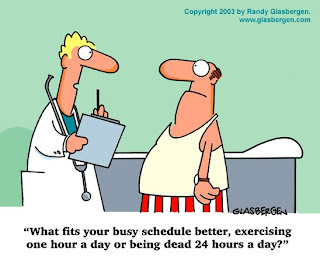Personally and professionally, across all faiths and backgrounds, we all have moments of highs and lows. It's unavoidable -- we're human.
But I believe it's how you respond from the crash that defines you. Are you someone that gets up stronger than before, or someone that feels fortunate to limp away?
I posted an update to Facebook earlier this week about a meeting where our demonstration went haywire. It really was no fault of ours (no, seriously!) -- the network we were using had blocked many of the sites we integrate with as part of our demonstration, so a lot of things that we usually show, we couldn't. Even though it was a simple explanation that was clear to everyone in the room, the demonstration suffered because of it.
We crashed. And we knew it.
 |
| He's clearly had a rough life. |
It often takes a few crash and burns before you get there, which is why you hear of guys that keep asking the same girl out over and over again because they're hopeful that eventually, she might say yes (see Cash, Johnny)!
If it's an opportunity (professionally or personally) that you really feel strongly about, you have to take the risk. And if you're unwilling to ask the hard questions (and be prepared for the answer you don't want), you're going to get the answer you DO want a lot less of the time. It's risk/reward, but when you stop asking, your chance of getting the answer you want, drops to zero.
I believe there are two things that can help ensure that a crash and burn while inevitable some of the time, isn't a total loss.
1. Every Experience is a Learning Experience
In business (and in your personal life), we encounter shall we say, interesting experiences on a daily basis. Some good, some bad, some that don't alter our pulse at all. But every experience is a learning experience, and here's what I mean.With our crash and burn earlier this week, we saw sites being blocked that made no sense (who blocks weather.com?). So ahead of a meeting yesterday, not only did we test every site (of which some were indeed blocked), but we modified our script to adjust to the absence of those sites and where possible, substituted viable alternatives. We learned from the negative experience and used it to maximize our impact.
In your personal life, try to reflect on the things that caused you to arrive where you are (in a crashed state no doubt), and how it could have been avoided. Should you have called more? Did you call too much? Did you say the wrong thing? Was the timing/situation just simply not right? Was saying sorry simply not enough? Were you just an idiot (I know I am sometimes!)? I could go on and on...
When you crash, try to understand why it happened, and if if could have been prevented. If you learn something from the experience, it's not a total loss.
2. Get Back in the Cockpit
Some people dwell on losses for a long time, and it affects their outlook on life, their job, relationships, etc... And I'm not blind to the fact that we all cope with things at our own pace, and in our own ways.However, it is absolutely true that after a crash, you need to get back in the cockpit as fast as possible to prove that the crash is not the norm; winning the race is the norm. The crash was an exception.
The longer you wait, the more reasons you'll find to delay getting back behind the wheel, and the more you'll suffer. If Johnny had stopped asking, June and he would have never become the love story that we've all come to know.
Don't be afraid of crashing. Be afraid of never crashing again, because if you never crash again, you probably didn't take enough chances.
Conclusion
Bad things happen. Mistakes happen. Network connectivity fails. Stuff just breaks. And it sucks. But the people that want to be the most successful in all facets of life take risks, are persistent, and stay focused on the things that are most important to them.So don't be afraid of the crash, and you'll be surprised how happy you can be.
If you like this content (and I hope you do), please connect with me on Linked In, Google Plus, or follow me on Twitter, and Subscribe to this Blog via RSS.












